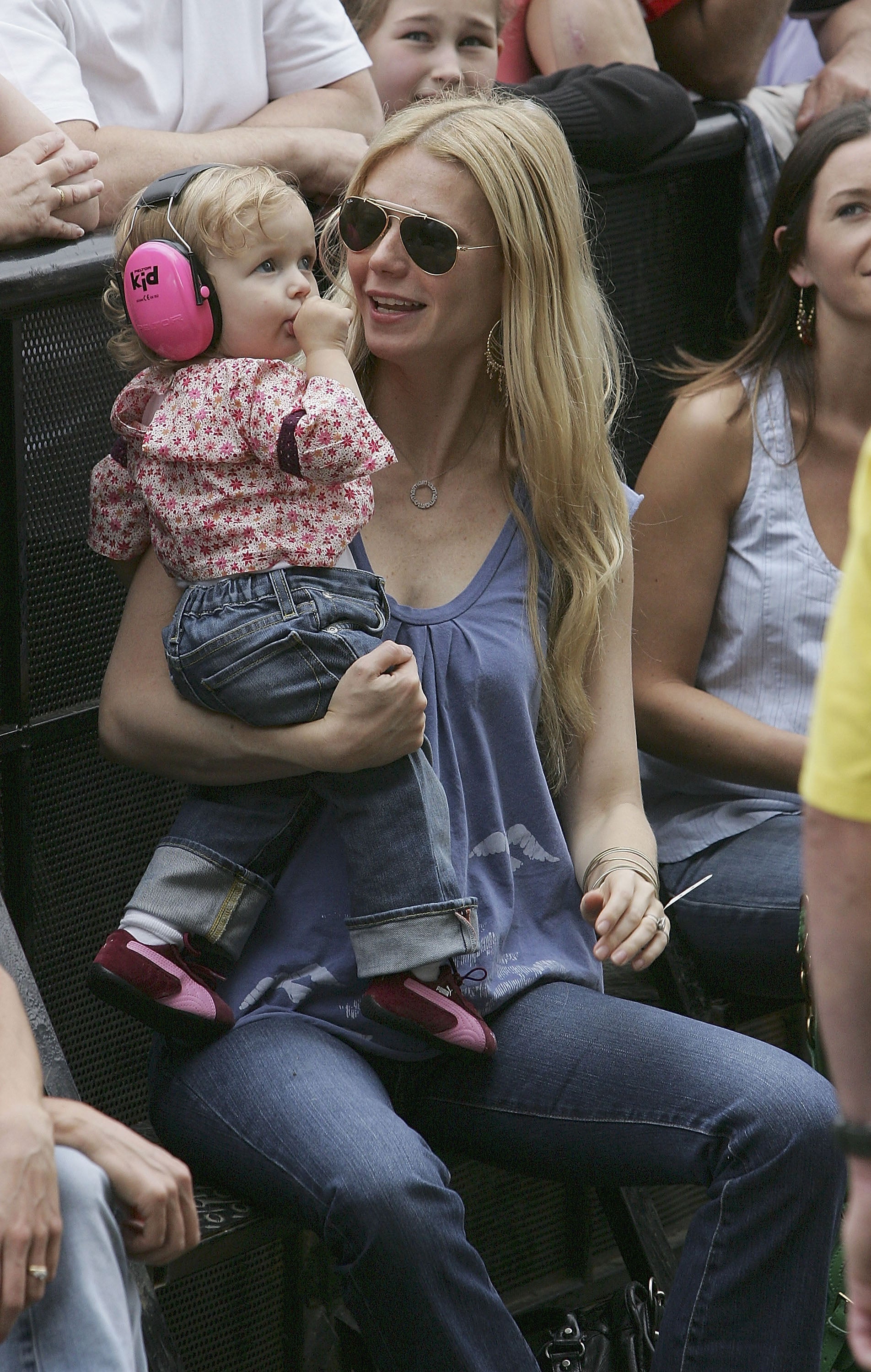I spent months trying to choose that perfect one-of-a-kind name for my second child. I wanted that weird and wild name that nobody else in their class would have, even pencilling in names on the more unusual end, like Petal Blossom Rainbow. Sadly, Jamie Oliver had already taken that moniker for his third daughter. I threw aside other names on the top of my list: Talulah, Boudicca and Valentina. I wanted a name beginning with “L” to match my eldest daughter Lola, whose name came to me in a lightbulb moment, as if she was always destined to be called that.
Ultimately, I decided to play it safe to avoid ridicule in the playground – and came up with Liberty, even contemplating hyphenating it with Ocean, or something really out there, but restrained myself. To my utter shock, however, there are three other Libertys in my daughter’s small primary school (one is now her bestie) and another living down the road. Should I have gone more off-piste?
I’d always envied those who chose outlandish names for their children, like the luxury pyjama designer Olivia von Halle, who has daughter Triptych Alabama Bliss and sons Hieronymus Vladimir Azax and Dionysus Cosmo Chaos. Von Halle was asked about people’s negative comments on their names in The Times in 2021: “We love it, honestly we do. The meaner the better, it makes us laugh so much.”
The Conservative politician Jacob Rees-Mogg tells me that he and his wife Helena settled on the names of their six children – Alfred Wulfric Leyson Pius, Thomas Wentworth Somerset Dunstan, Peter Theodore Alphege, Anselm Charles Fitzwilliam, Mary Anne Charlotte Emma, and Sixtus Dominic Boniface Christopher – “relatively quickly”, but that “they were certainly thought about carefully – and have some relevance”.
“Amselm was Helena’s idea, after she liked a street name. I almost bit her hand off,” he explains. For him, Anselm conjured images of Saint Anselm, who served as Archbishop of Canterbury from 1093 to 1109. Sixtus, the name of his youngest child, is also a saint, but, he says, the name is meant to be a pun. “The sixth child is called Sixtus but it doesn’t mean sixth. It means polished. We thought it was amusing,” he adds.
I have some people who tell me a specific vibe they’re going for: future athlete, CEO names, presidential names, country club names, Ivy League university names, future musicians
Colleen Slagen, baby naming consultant
All his children’s names are sprinkled with saint’s names. Alfred’s unusual middle name Wulfric refers to a hermit saint who was born in Compton Martin, the neighbouring village near to the Rees-Mogg’s Somerset home, Gournay Court. “When you are baptised, you should have a saint’s name,” says Rees-Mogg. “And I liked the idea they had saints. You hope they are keeping an eye on them.”
For many parents, and particularly celebrity ones, the zanier the better when it comes to names. Think Gwyneth Paltrow and Chris Martin’s daughter Apple, or the three children shared by Elon Musk and the musician Grimes: Techno Mechanicus, or “Tau” for short, Exa Dark Sideræl, whom they call “Y,” and their son, X Æ A-Xii (formerly X Æ A-12).
But whether it’s a form of entertainment for parents-to-be or a deeply stressful process, people are increasingly outsourcing the naming of their children to professional baby namers. It’s a lucrative business in which practitioners can charge up to a whopping $30,000 per child, primarily because they insist names are incredibly important. Take Taylor Humphrey, who made claims in The Times last week that names “absolutely shape who you are”. She warned: “They put you on a path to your destiny. They shape the approach you take in your life.”
But where does that leave us all? Can a name really dictate our future success and give us better job prospects? Is having a gender-neutral name a good idea to stop gender bias and discrimination?
According to research published in 2009, girls with gender-neutral baby names are more likely to succeed in traditionally “male-dominated” careers – meaning names like Blake, Rebel, and Charlie may help your child avoid gender-based discrimination. An earlier study in 2005 found that girls with more gender-neutral names are more likely to complete higher levels of math and science courses.

“There’s some debate around the extent to which names can predict future success,” argues Sophie Kihm, Editor-in-Chief at Nameberry, who also works in-house as a baby name consultant. Consulting prices start at $150 and go up to $10,000, and can include tasks such as refining a list of names, to choosing between two options, overcoming name regret, or resolving a naming dispute. She tells me that we should be conscious of the time many of these studies took place in. “The research showing that women with masculine or gender-neutral names are more likely to be hired is over 20 years old,” she says. “I’m not sure the data still holds up. There have been big shifts in the name landscape over those decades.”
Kihm points out that the gender distribution of names is changing all the time. “Parents in the 2000s may have named their daughter Harper thinking a more masculine style name would give her a leg up in the workplace, but today, many people think of Harper as a girls’ name, which would eliminate any effect of intentionally using a gender-neutral name,” she says. “It’s also difficult to predict how the gender balance of names will change over time. Feminine names like Lauren, Beverly, and Evelyn were once entirely male.”
But, despite the changing winds of unisex names, a clear benefit, she says, is that they give the child space to explore their gender as they get older. Top gender-neutral names on Nameberry include Parker, Blake and Remington. “Children with gender-neutral names may feel more comfortable questioning and exploring their gender identity,” she adds. But concerns about how successful children could be with one name versus another should not be the deciding factor when choosing a name. “It’s much more important that a child has a name their parents love. And factors like personal meaning or family connection can be much more impactful on a child.”

According to Nameberry research, the average amount of time it takes parents to name their baby is 5.08 months into pregnancy (about 20 weeks and two days). However, about 22 per cent of parents go into the birth without the name choice finalised. “The biggest mistakes parents can make when choosing a baby name is starting the baby name process too late and allowing themselves to be pressured into a specific name choice,” she warns. “When consulting on baby name regret cases, these are the two most common reasons parents want to change their baby’s name.”
Top baby name consultant Colleen Slagen – who is the author of this year’s Naming Bebe – charges $500 for a full consultation, which includes a Zoom call and curated name recommendations with commentary on popularity, style, and rationale. She also offers a package called “Name 911” for simpler questions involving sibling cohesion or middle name help, which costs $85.
“Some clients send me colour-coded Excel spreadsheets and a copy of their family tree,” she explains. “For a full consultation, I put together name ideas in a six to seven page document for them.” People are feeling more “emboldened”, she says, to lean into unique names, now that public figures and influencers have paved the way. “It’s an expression of style and perhaps at times prescriptive.”
TikTok baby name influencers with large followings are also popular ways for new parents to find inspiration – such as the model Nara Smith, who is known for giving her children zany names like Whimsy Lou, Rumble Honey, and Slim Easy.
Some families, says Slagen, even go as far as to look upon the naming process like branding. “I have some people who tell me a specific vibe they’re going for: future athlete, CEO names, presidential names, country club names, Ivy League university names, future musicians.” Slagen doesn’t believe names affect future prospects. “For the most part, I think it’s more correlative of the types of parents who are more likely to raise their child in a certain way. But you can definitely be judged or stereotyped for your name.”
.jpeg)
Common mistakes, she says, include using your favourite names for your dog. “One client came to me wondering if she should change her cat’s name because it was very similar to a name she wanted to use one day if she has a daughter. I told her to change it… way too many people come to me telling me they wasted their best stuff on their dog or cat.”
Don’t try to people-please family members with your name choice, either. “For some reason, people who have no part in birthing the baby feel like they should have a major stake in naming the baby,” she says. “This will never cease to amaze me.” She also warns against choosing names that are too matchy. When the right name is picked, it can be a eureka moment, she explains, but generally it’s a long, drawn-out process like pulling teeth.
“It’s like wedding dresses; sometimes people end up liking something that isn’t the style they’re typically drawn to,” she says. “For some people it is an ‘a-ha’ moment, but I think a lot of the people I’m working with have already considered a lot of names and done a lot of research themselves, so it’s a much more analytical process to get to the right name and often times a gut feeling once the baby arrives.”




0 Comments